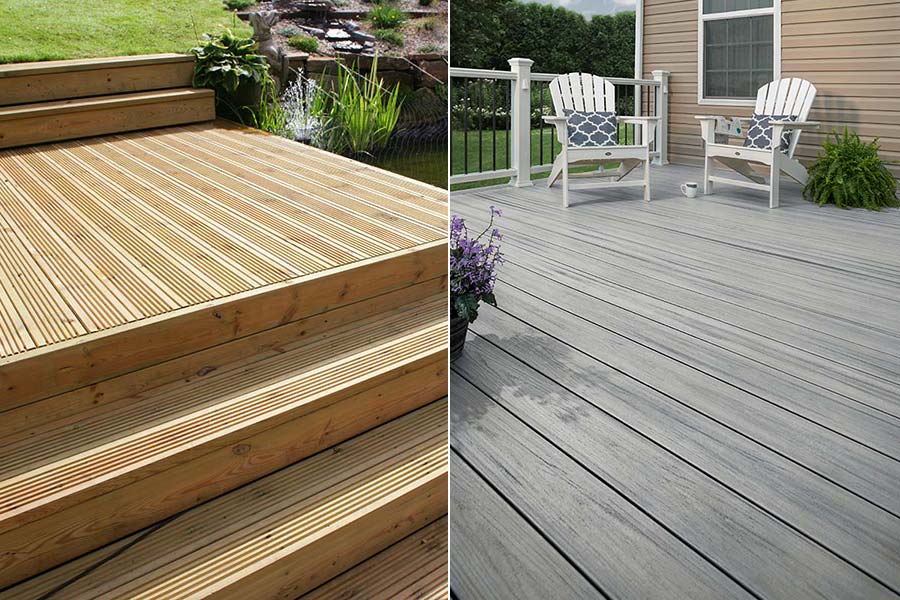When it comes to building a deck, one of the most important decisions you’ll have to make is choosing the right material. Two popular options that often come up in this discussion are composite wood and hardwood. Each has its own set of advantages and disadvantages, making it a matter of personal preference. In this blog post, we’ll dive into the factors you should consider when making your decision, including budget, aesthetics, functionality, durability, maintenance, and environmental impact. By the end of this article, you’ll be equipped with the knowledge needed to choose between composite wood and hardwood for your dream deck.
Budget-Friendly Composite Wood
If you’re looking for a more cost-effective option without compromising on quality, then composite wood is worth considering. Made from a blend of recycled materials such as wood fibers and plastic, composite wood offers an attractive alternative to traditional hardwood decking at a lower price point. Here are some key points to consider:
1. Affordability
Composite wood typically comes at a lower upfront cost compared to hardwood. This can be especially appealing if you’re working within a tight budget but still want a high-quality deck.
2. Low Maintenance
One significant advantage of composite wood is its low maintenance requirements. Unlike hardwood that requires regular staining or sealing to maintain its appearance and protect it from the elements, composite wood only needs occasional cleaning with soap and water.
3. Durability
Composite wood is highly resistant to rotting, warping, and splintering due to its composition of synthetic materials. It also stands up well against moisture damage and insect infestation – common issues faced by decks made from natural hardwood.
While composite wood offers several benefits in terms of affordability and low maintenance, it’s important to note that there are some drawbacks as well.

Considerations:
- Composite woods may not have the same natural look and feel as hardwood.
- Extreme heat can cause composite wood to become hot underfoot.
- Over time, the color of composite wood may fade due to exposure to sunlight.
Timeless Beauty of Hardwood
If you have a higher budget and prioritize the classic appeal of natural materials, hardwood decking might be the perfect choice for you. Let’s explore the advantages that hardwood brings to the table:
1. Aesthetics
One of the most significant benefits of hardwood is its unmatched beauty and natural warmth. The rich colors, grain patterns, and textures create a timeless elegance that many homeowners desire for their outdoor spaces.
2. Longevity
Hardwood decks are known for their exceptional durability and longevity. With proper care and maintenance, they can last for decades, maintaining their strength and beauty over time.
3. Variety
Hardwood offers a wide range of species to choose from, each with its own unique characteristics. Whether you prefer the deep red hues of Mahogany or the golden tones of Teak, there’s a hardwood option that will perfectly complement your design vision.
While hardwood decking has numerous advantages, it’s crucial to consider some potential limitations as well.

Considerations:
- Hardwood generally requires more frequent maintenance compared to composite wood.
- It is more susceptible to scratches and dents than composite wood.
- Price points for different hardwood species can vary significantly.
In conclusion…
Choosing between composite wood and hardwood for your deck ultimately depends on various factors such as your budget, desired aesthetic appeal, functionality requirements, durability expectations, maintenance capabilities, and environmental concerns. Both options offer distinct advantages; it’s about finding the balance that aligns with your preferences and needs. Whether you opt for the affordability and low maintenance of composite wood or the timeless beauty and longevity of hardwood, investing in a well-designed deck will undoubtedly enhance your outdoor living experience for years to come.

